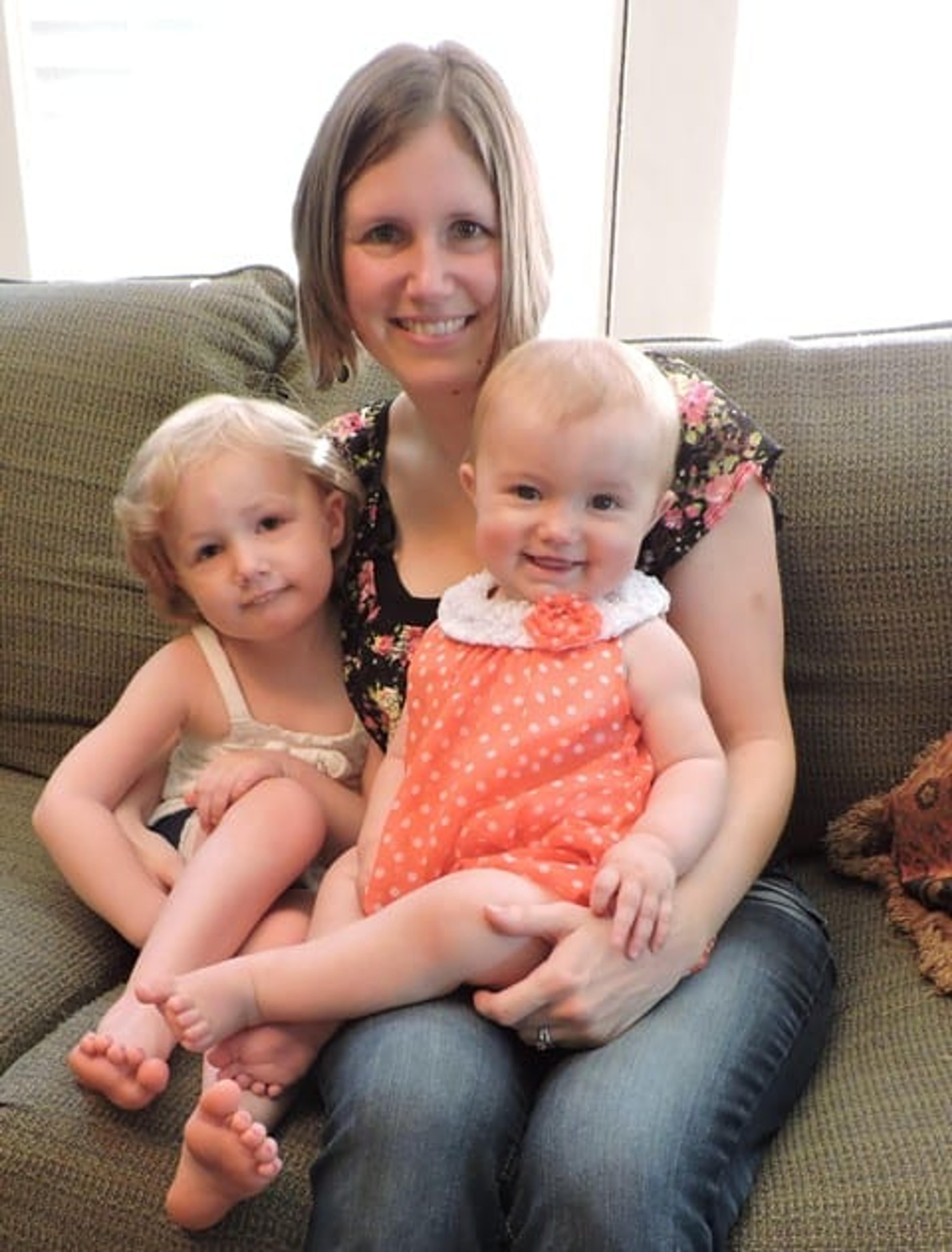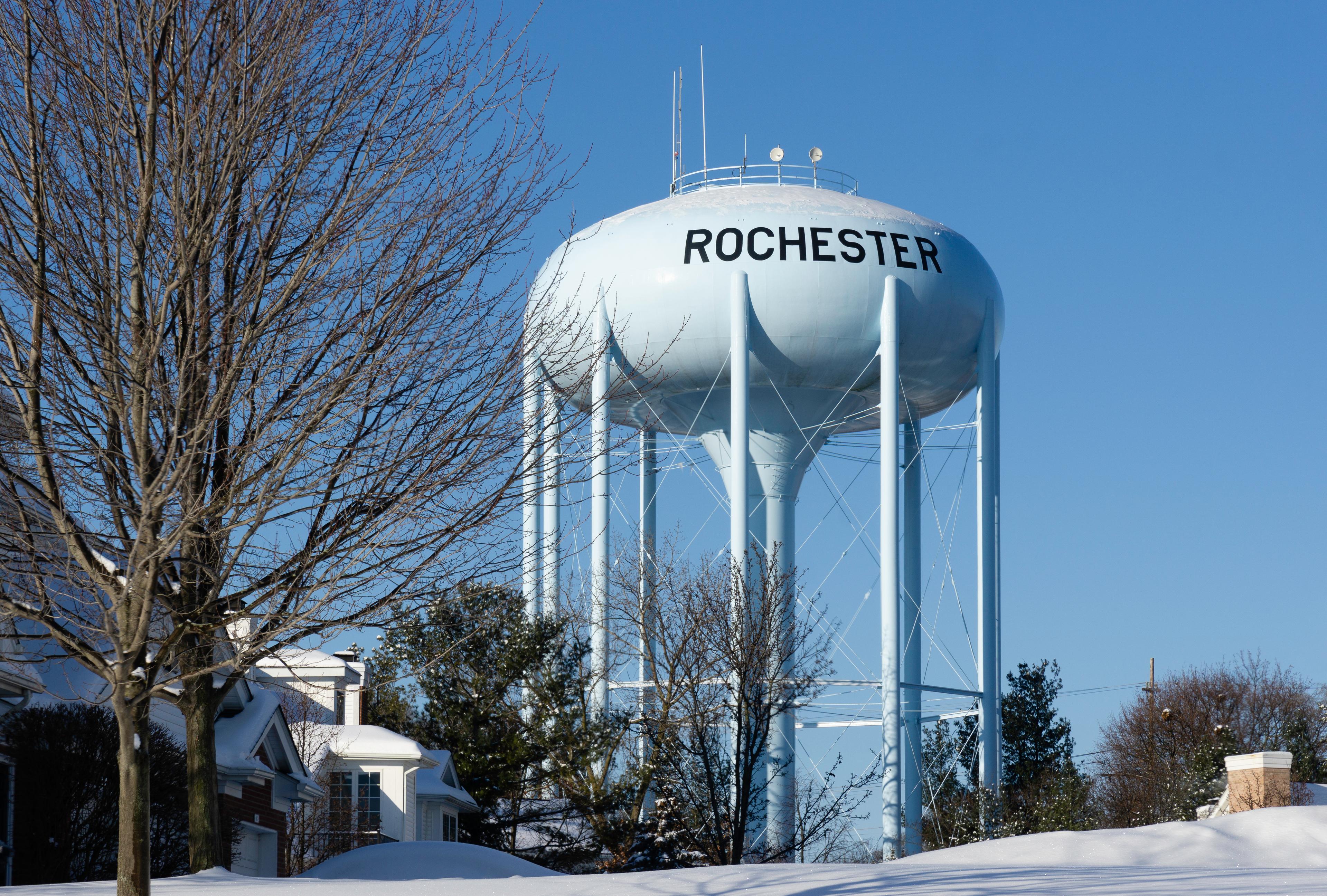Michigan’s new breastfeeding law is giving advocating moms more confidence

Julie Bitely
| 5 min read


Miriel Smith with daughters Eliza and Emery.
Breastfeeding advocates are hopeful that new Michigan legislation will give moms more confidence to nurse where and when they need to.
The Breastfeeding Anti-Discrimination Act was signed into law by Gov. Rick Snyder in June. It gives women the right to breastfeed in public spaces and offers protection from discrimination and prosecution for doing so. Specifically, business owners can’t deny services or access to breastfeeding women. They also can’t post signs indicating that breastfeeding women aren’t welcome in their establishment and could face a $200 penalty for violating the law.
Michigan is the 46th state to enact some type of law allowing women to breastfeed in public. The state ranks in the bottom third of states for breastfeeding rates. The American Academy of Pediatrics recommends exclusive breastfeeding for the first six months.
Miriel Smith lives on Grand Rapids’ northwest side with husband Rick and daughters Eliza, 3, and Emery, 11 months. She’s working to become a lactation consultant and La Leche League leader, an organization formed in the 1950s to support breastfeeding moms. Smith was exposed to the support group through breastfeeding her girls. She’s become such a breastfeeding advocate that she has completed a set of paintings depicting her nursing both girls that will be featured as part of Fountain Street Church’s ArtPrize exhibit.
“I think (the new legislation) will give a lot of moms’ confidence to leave their house more,” Smith said.
For Smith, changing attitudes toward breastfeeding were apparent to her with the different experiences she had in the hospital after giving birth to Eliza and then Emery. Even though the girls are only about two years apart, she said nurses encouraged formula for Eliza, which Smith refused. Two years later, at Emery’s arrival, nurses at the same hospital supported her desire to exclusively nurse.
“When Emery was born, they were really supportive,” she said. “It was a completely different experience.”
Smith believes her initial hospital experiences influenced how well her children responded to breastfeeding. It didn’t come as naturally with Eliza, while Emery took right to it.
“For them, that first experience after birth really makes a difference,” she said.
Smith said she never experienced discrimination for nursing in public, but had a friend get kicked out of a grocery store for nursing her baby. She said this particular mom was struggling to nurse in the first place and had a low milk supply so her baby needed to eat frequently.
“It’s nice to know that women who are going through all of that won’t be discriminated against,” she said. “Now, luckily the reaction can be the law supports me.”
Smith said ideally, businesses and public spaces would be more supportive of breastfeeding moms in general. She said with Eliza, she would plan shopping trips according to which stores she knew she could count on to be able to nurse comfortably.
“I really wish the world was built more for nursing moms and even more for privacy for those moms who want it,” she said.
When asked about the idea that women can always cover their babies while nursing or use a restroom for privacy, Smith said that’s just not practical. Her babies wouldn’t eat with their heads covered and the idea of a bathroom stall doesn’t work for her.
“That’s not a place to eat a meal,” Smith said.
Health officials want to see breastfeeding rates rise because of the health benefits to both mom and baby. Moms who breastfeed have reduced rates of postpartum depression, ovarian and breast cancers. For babies, breast milk is viewed as the best form of nutrition for infants, with studies suggesting it helps fight off a wide range of infections and health conditions later in life such as obesity, diabetes, and allergies.
“If you think about it, breast milk is the perfect match for the baby,” said Pat Tucker, a registered dietician and board-certified lactation consultant with the Kent County Health Department.
She said babies who are breastfed experience fewer digestive issues, constipation, and reflux. Breastfeeding moms actually produce protective antibodies in their milk in response to changes in their environment and based on their baby. She said breast milk is a living, dynamic food that adapts to the baby’s needs. For example, the composition of milk for a premature infant is different than a full-term baby.
“There’s no way to replicate that,” Tucker said. “As much as formula tries to copy that, they’re never going to get it.”
With newborns needing to nurse approximately every two hours or even more frequently, Tucker said asking moms to find a private space to breastfeed effectively ostracizes and isolates them from the community. She hears from her clients that they worry about being judged or scolded in public.
“Having more people around them that accept it as the normal way of feeding a baby makes the decision a lot easier,” she said.
While she wishes breastfeeding in public were more culturally accepted in general in the United States, Tucker feels the legislation is necessary.
“Women do get asked to leave places and we at least need to have the protections in place,” she said.
Valerie Williams, a 16-year La Leche League leader from Grand Rapids, said she had a mom quit breastfeeding cold turkey many years ago after a stranger said something demeaning to her while she was feeding her baby. Williams said that type of reaction hits hard for moms, who may be nervous about breastfeeding in public in the first place.
“For many of them, the first and immediate reaction is humiliation,” Williams said. “She feels like she’s done something wrong when she’s just trying to feed her baby.”
Williams said any move to a more breastfeeding-friendly culture is a step in the right direction. She said the odds are stacked against moms who want to nurse. Everything from post-partum depression, pediatricians pushing formula out of a concern for babies gaining weight, and short maternity leaves makes nursing a baby for any length of time extremely difficult. Normalizing breastfeeding in public could help.
“There are so many reasons women give up early on,” she said. “I do think more public breastfeeding is helpful. A baby nurses. That’s what they do.”
If you found this post useful, make sure to check out:
Photo credit: Pixabay, Julie Bitely





